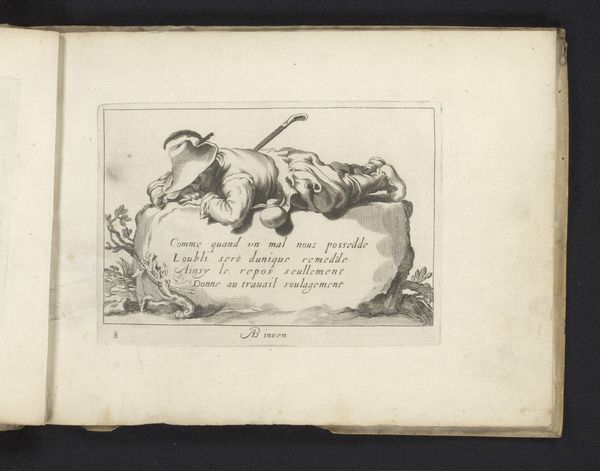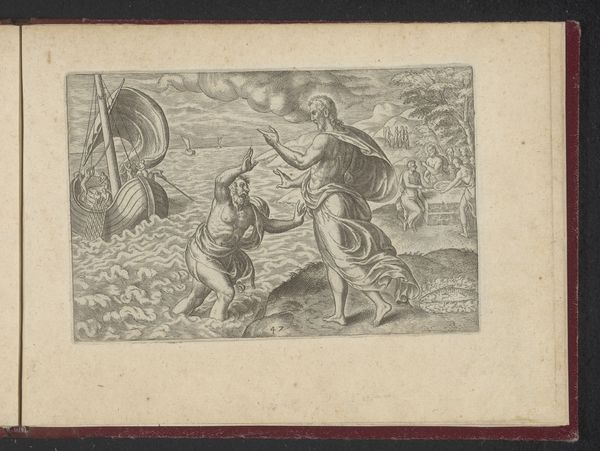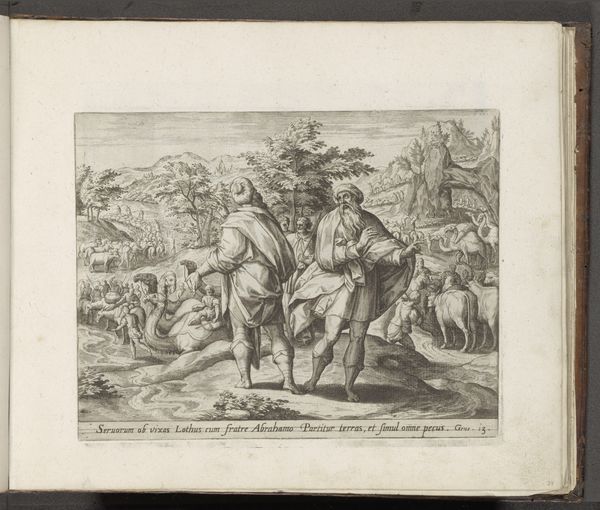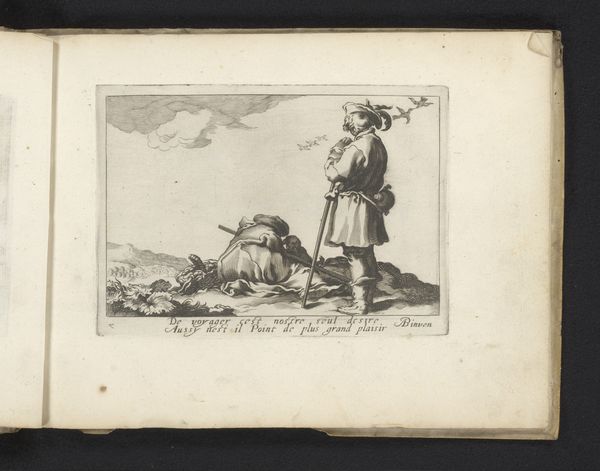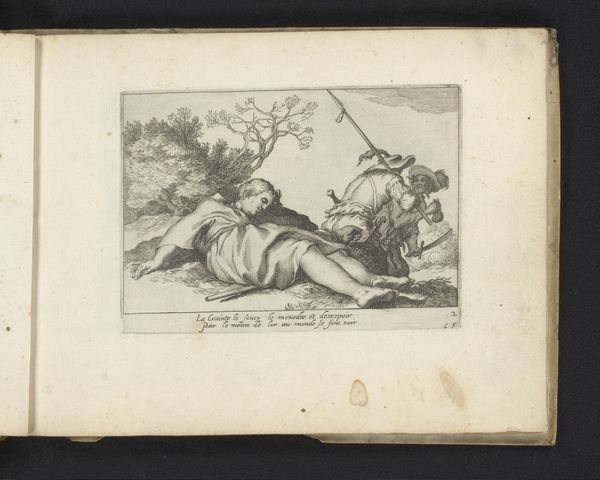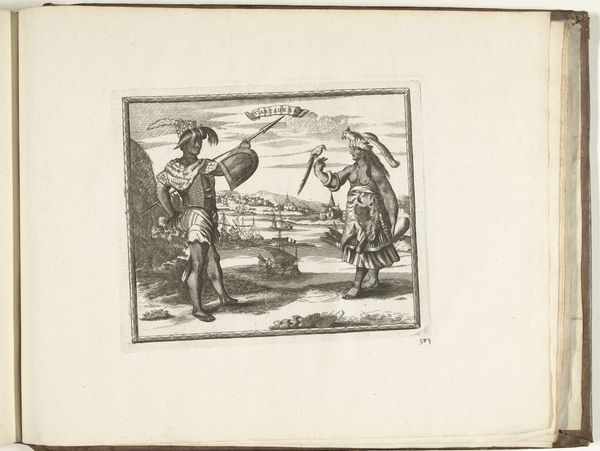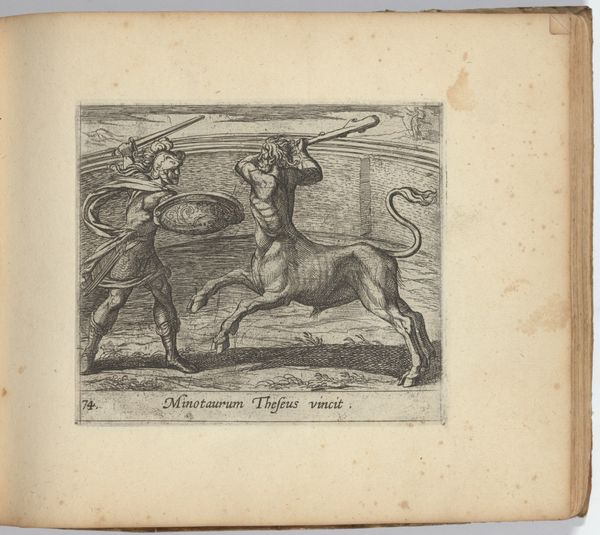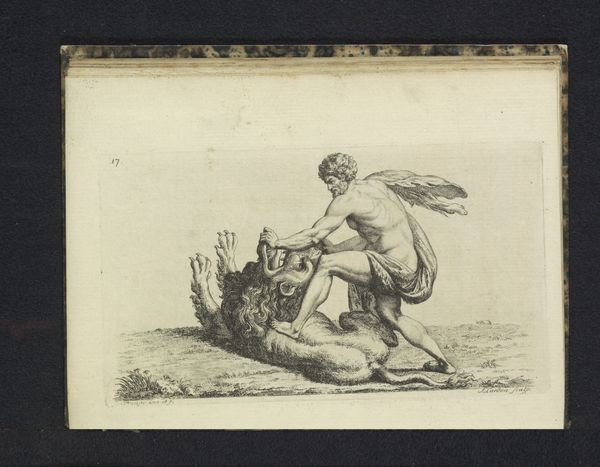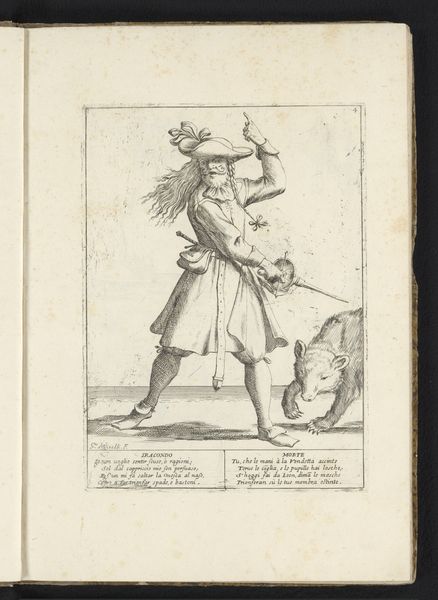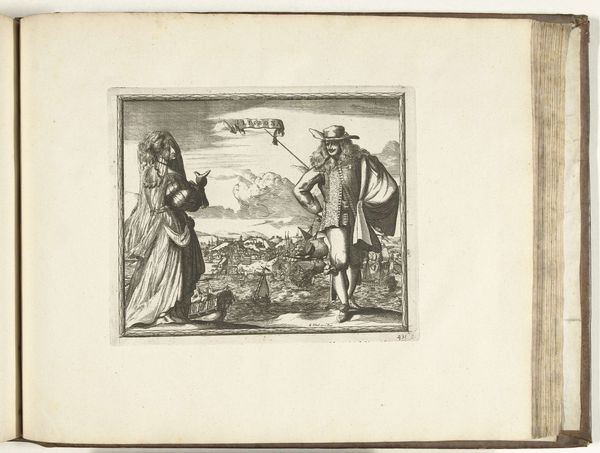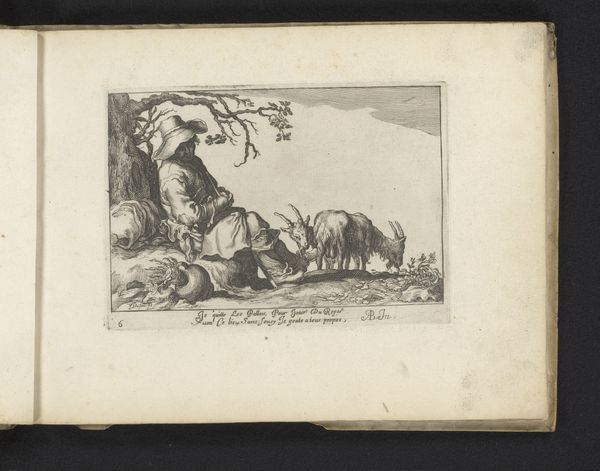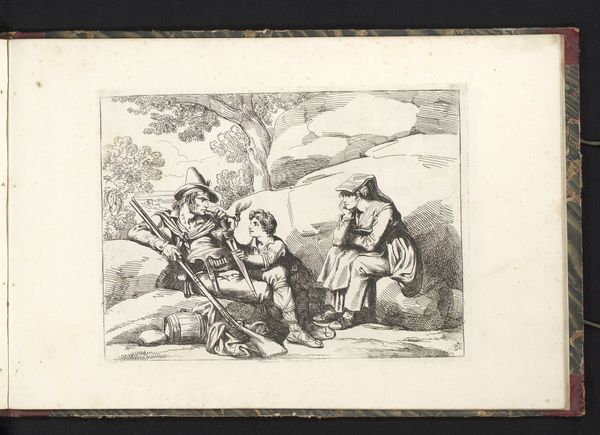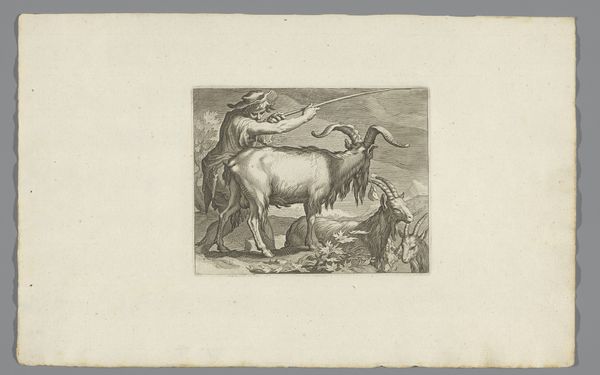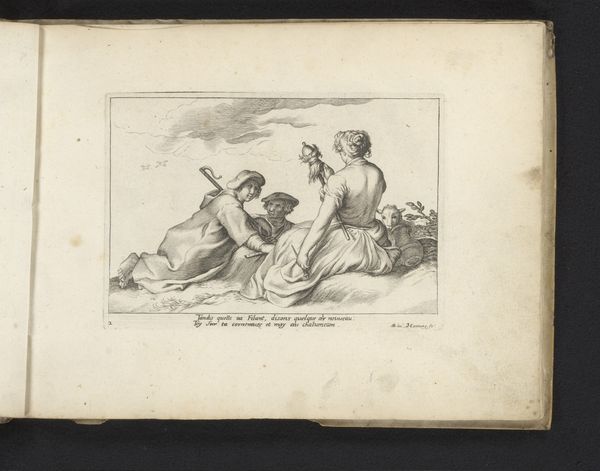
print, engraving
#
narrative-art
# print
#
landscape
#
figuration
#
history-painting
#
engraving
Dimensions: height 214 mm, width 216 mm
Copyright: Rijks Museum: Open Domain
Editor: So, we have here “Edelman in gevecht met een wolf”, a print made sometime between 1622 and 1693 by Alexandre Bettou. The engraving depicts a nobleman fighting a wolf. There’s a kind of contained violence in the composition that’s interesting. How would you interpret the historical implications of an image like this? Curator: It’s intriguing, isn’t it? I see this work reflecting a period where the nobility still held social power, visually re-establishing dominance through symbolic displays like conquering a wild animal. Consider the context – the socio-political position of the noble class was subtly being questioned at this time. What statement do you think such a controlled, almost staged, fight makes in this climate? Editor: I guess it’s a message about control, right? Control over nature, control over society…a very controlled image for a society perhaps feeling out of control. A reminder, in a sense. But would everyone at the time have seen it that way? Curator: That’s the question. Public perception is key. Was it displayed publicly, aimed at reinforcing noble authority to the masses? Or perhaps kept within noble circles, acting as a visual emblem of their supposed superiority for their own reaffirmation? Who controlled the dissemination of these images heavily influenced their socio-political impact. Editor: It really highlights how art isn’t just ‘art,’ it’s deeply connected to social dynamics. So the meaning isn't just intrinsic, but relational, to the public sphere. Curator: Precisely. And how the context, more than just artistic talent, shaped the work’s role. Examining who commissioned, created, consumed, and controlled the artwork is essential. What about the wolf itself—how does its depiction impact the narrative being presented here? Editor: I hadn't thought of the wolf...it does look sort of 'tame,' maybe? More like a prop than a threat. Almost staged as you mentioned earlier. Okay, now my brain is going a mile a minute with possibilities. Curator: Excellent. See how analyzing art history unveils so much more than aesthetics.
Comments
No comments
Be the first to comment and join the conversation on the ultimate creative platform.
